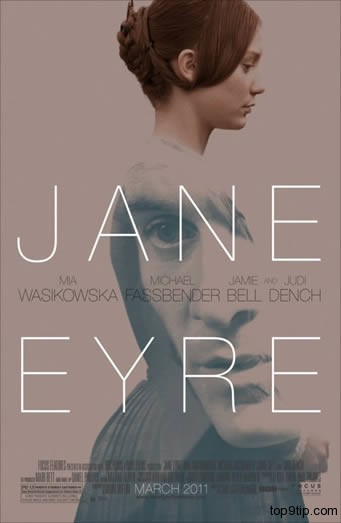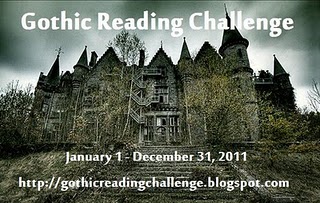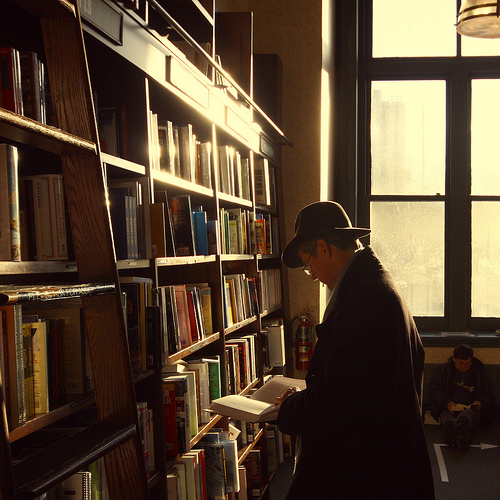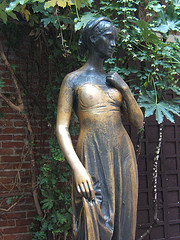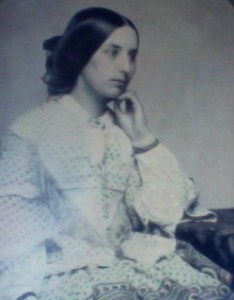
As I wrap up reading Jude Morgan’s Passion (I have about 100 pages to go), I think I’ve developed a girl-crush on Fanny Brawne. Fanny Brawne was John Keats’s fiancée and muse for some of his poetry. While perhaps not classically beautiful, she had something of wit and charm about her that reminds me of a Jane Austen heroine. While I understand Morgan’s book is fiction, his novel is not the only such fictional account to portray her this way: the Jane Campion film Bright Star , starring Abbie Cornish as Fanny and Ben Whishaw as Keats, also characterizes Fanny as a sparkling wit and a gifted fashion designer.
Ever since I picked up Morgan’s novel (and, I admit, since I saw Bright Star last month), I have been learning all I can about the late Romantic poets—Byron, Shelley, and Keats. I took a course in college in Late Romantic Literature, and as I learn and I read, I can’t help but wonder what my professor for that course must think of Passion and Bright Star.
One of the things I’ve learned is that Fanny’s reputation in the nineteenth century was much maligned by both Keats’s friends and literary scholars who seemed to feel Fanny undeserving of Keats’s devotion. Keats’s friend Charles Brown seemed to feel Fanny was a capricious flirt who toyed with Keats’s affections. In any case, many of Keats’s friends felt Fanny was bad for Keats. On the other hand, he was at his most prolific while in love with Fanny, and many critics believe some of his famous works, such as the sonnet “Bright Star,” were written about Fanny:
Bright star, would I were steadfast as thou art—
Not in lone splendour hung aloft the night
And watching, with eternal lids apart,
Like nature’s patient, sleepless Eremite,
The moving waters at their priestlike task
Of pure ablution round earth’s human shores,
Or gazing on the new soft-fallen mask
Of snow upon the mountains and the moors—
No—yet still steadfast, still unchangeable,
Pillow’d upon my fair love’s ripening breast,
To feel for ever its soft fall and swell,
Awake for ever in a sweet unrest,
Still, still to hear her tender-taken breath,
And so live ever—or else swoon to death.
Fanny Brawne was largely unknown to Keats scholarship until the publication of Keats’s letters to her in 1878. R. H. Stoddard criticized their publication:
Miss Fanny Brawne made John Keats ridiculous in the eyes of his friends in his lifetime, and now she (through her representatives) makes him ridiculous in the eyes of the world. She (and they) have had fifty-seven years in which to think about it; she forty-four years as maid and wife; they thirteen years as her children. Why did she keep his letters all those years? What could she keep them for but to minister to her vanity, and to remind her that once upon a time a crazy young English poet was desperately in love with her, was her captive and her slave? What else could she keep them for? She revered the memory of Keats, did she? This is how she revered it…. I have two more questions to ask: What motive actuated the descendants of Fanny Brawne in allowing the publication of this objectionable book? Could there be any motive other than that of lucre?
Fanny saved Keats’s letters and left them to her children after she died in 1865. If John Keats meant nothing to her, why did she wear mourning for six years after his death? Why save these letters? Stoddard would argue that she hoped they’d be valuable, but she cannot have known that as it took some time after Keats’s death for his work to be appreciated. Later on, she must have thought they might be valuable or she would not have entrusted them to her children. It is known she had to sell a miniature of Keats that she had kept for years after his death. Stoddard criticizes Fanny for not burning the letters, but these letters are widely considered to be among the most romantic letters ever written. Why would any woman burn them?
It would seem that after Fanny’s letters to Keats’s sister Fanny Keats were published in 1937 by the Oxford University Press, the tide turned for Fanny, who was revealed to have truly loved Keats: “If I am to lose him I lose everything,” she declared in one letter written as Keats’s death neared.
Keats addressed Fanny in his letters as “My dearest girl,” and it is clear he was devastated not to be able to marry her. Fanny’s mother would not approve the marriage until Keats proved able to support Fanny, but that success came too late as Keats developed the consumption that had also taken his brother, Tom. Keats, a surgeon, recognized the signs of consumption only too well when he first began displaying symptoms.
The love story of Fanny Brawne and John Keats is one of the great love stories of literary history. It’s a shame that we do not have Fanny’s letters to Keats, which were destroyed by Keats’s request after his death, for we truly only have part of their story. In March 1820, Keats wrote to Fanny:
My dearest Fanny, I slept well last night and am no worse this morning for it. Day by day if I am not deceived I get a more unrestrain’d use of my Chest. The nearer a racer gets to the Goal the more his anxiety becomes so I lingering upon the borders of health feel my impatience increase. Perhaps on your account I have imagined my illness more serious than it is: how horrid was the chance of slipping into the ground instead of into your arms—the difference is amazing Love—Death must come at last; Man must die, as Shallow says; but before that is my fate I feign [sic] would try what more pleasures than you have given so sweet a creature as you can give. Let me have another op[p]ortunity of years before me and I will not die without being remember’d. Take care of yourself dear that we may both be well in the Summer. I do not at all fatigue myself with writing, having merely to put a line or two here and there, a Task which would worry a stout state of the body and mind, but which just suits me as I can do no more.
One of my favorite dialogues between Keats and Fanny in Passion:
“Will you oblige me by leaning a little closer, Mr Keats? I wish to make Mr Swain jealous.”
Keats, emerging from his shade of watchful quietness, frowns. “I see no Mr Swain.”
“That’s because you don’t have my eyes. Everyone for me has two names, Mr Keats. The real one and the appropriate one. The real one is arbitrary and nonsensical. Would you say that I am characterized by brawn?”
“I might if you vexed me enough.”
“That is not gallant, and you know what I mean. Now when you assign a title to a poem, you don’t choose any old arbitrary words, do you? You choose a title that suits. So I call that gentleman with the thin legs and weak hair Mr Swain, because he is so exactly like a swain, or how I have always fancied a swain in poetry. Or, rather, not fancied it.”
“A sad fate for a fine old word. You would rather have a lover than a swain, then?”
“Mr Keats!”
“I speak of words. With words. If I lean towards you, Miss Brawne, I shall do it because I want to, not to save you from Mr Swain.”
“That would be an unpardonable liberty, and I only allow the pardonable ones. Besides, Mr Masterful has gone in to cards, and if I do any leaning in, I want him to see it and be jealous.”
He sits back, studying her. Those wide cheekbones: she has an acute image of a sculptor lightly pressing both thumbs into damp clay, creating him: stepping back from the beautiful intensity.
“My name for you,” he declares, “shall be Minx.”
“Why, I ought to be insulted.”
“You ought to be, indeed, on a daily basis: it might do you good.”
Images from Bright Star. Dir. Jane Campion. Perf. Abbie Cornish, Ben Whishaw. Pathé Renn, 2009. Film.
For more information, see The Life and Work of John Keats.
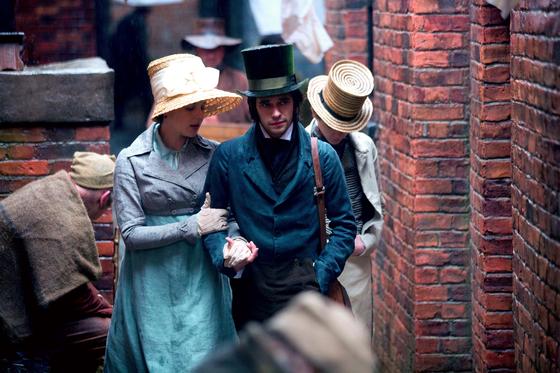
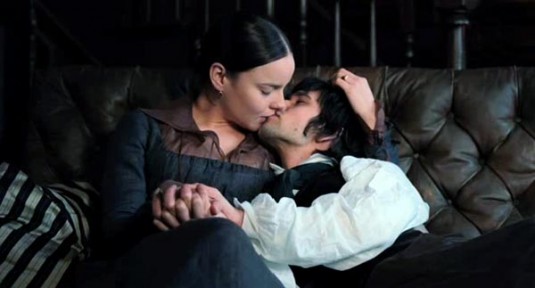
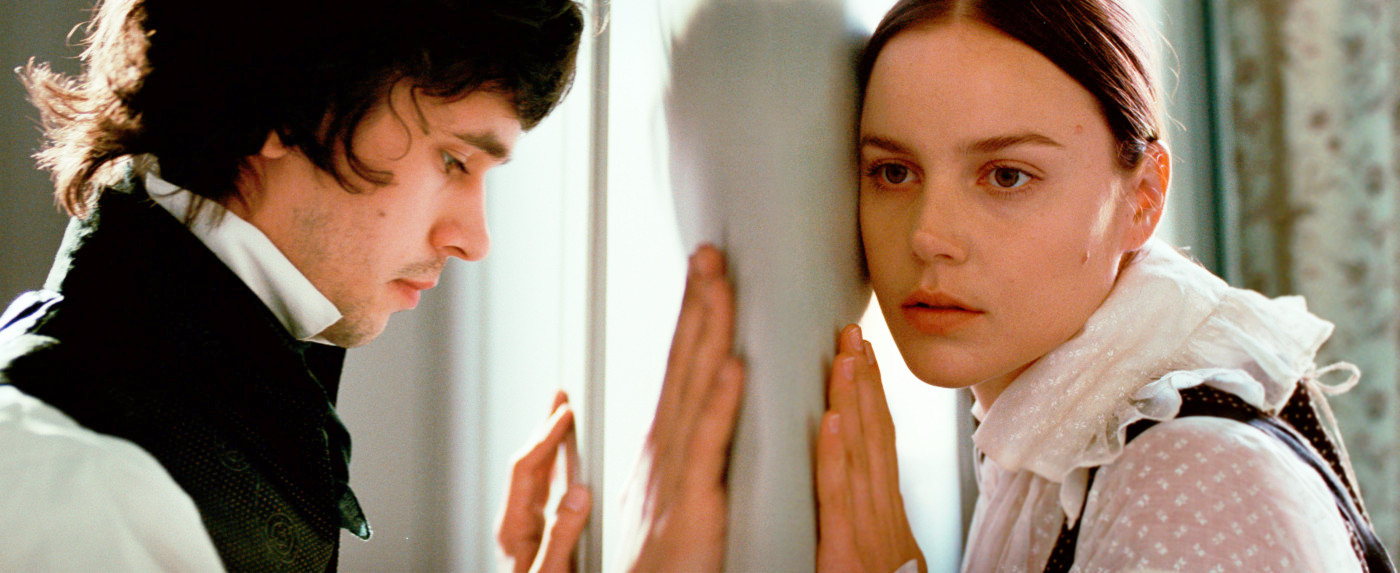
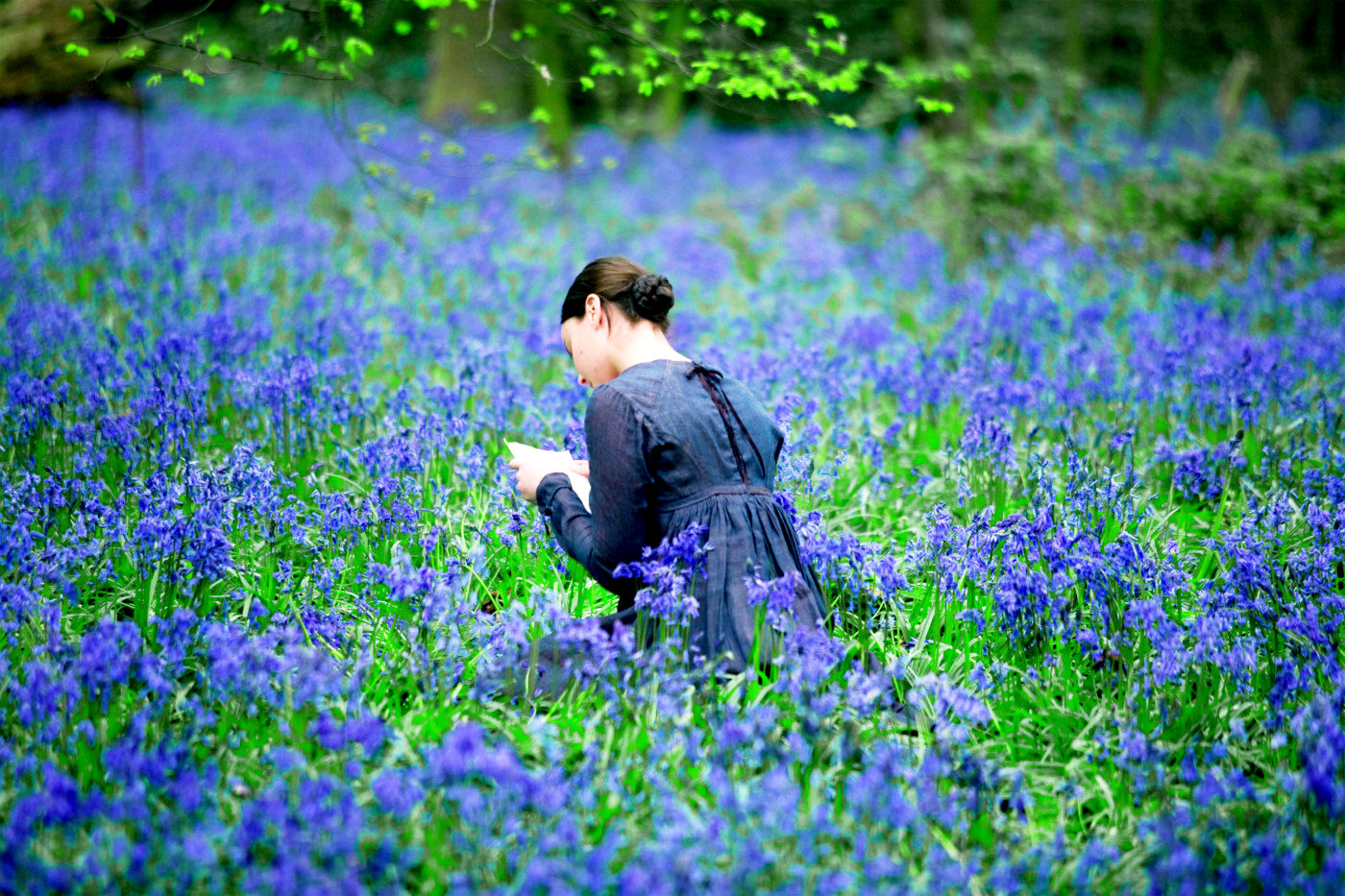
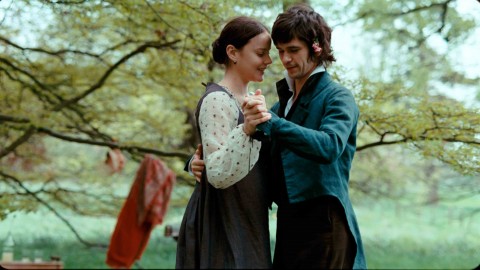
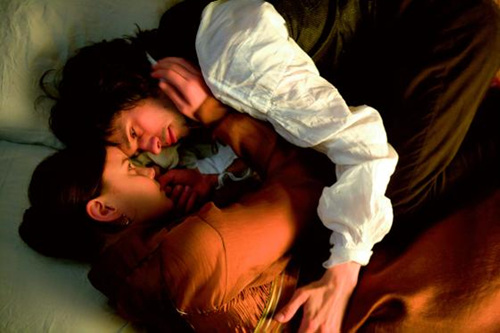


 How much am I enjoying Jude Morgan’s novel
How much am I enjoying Jude Morgan’s novel 


